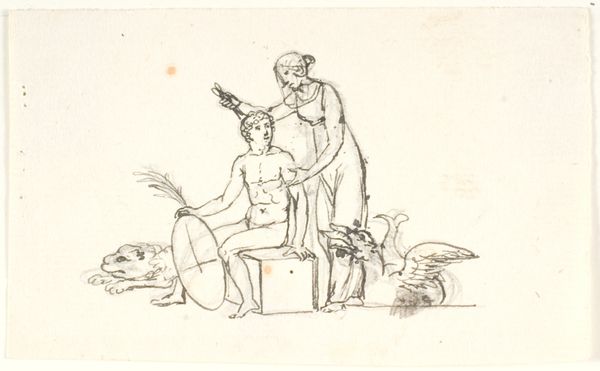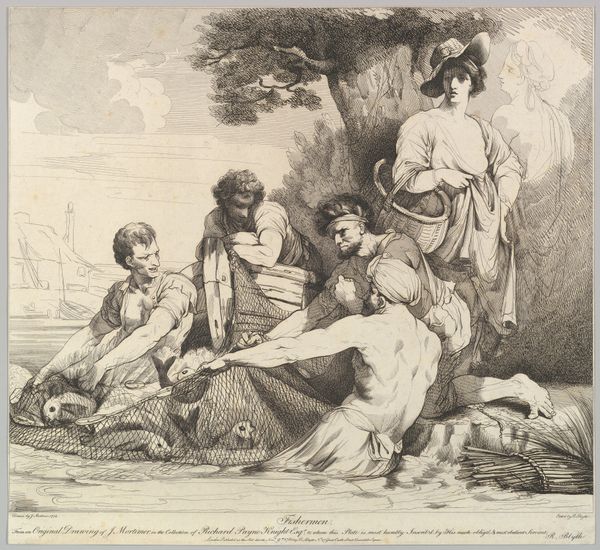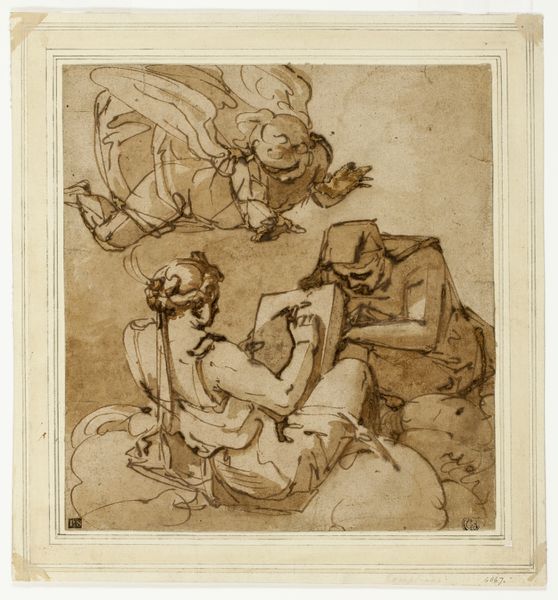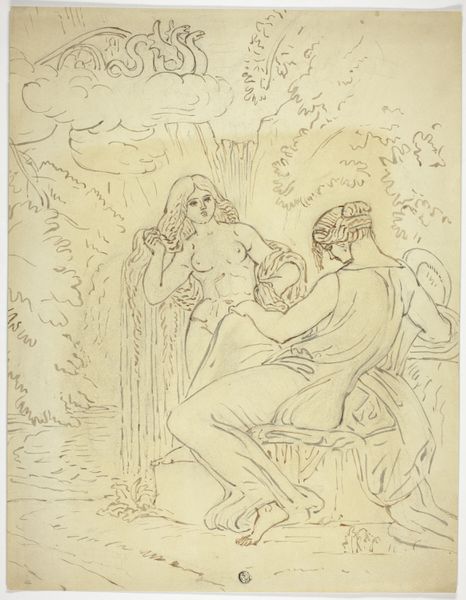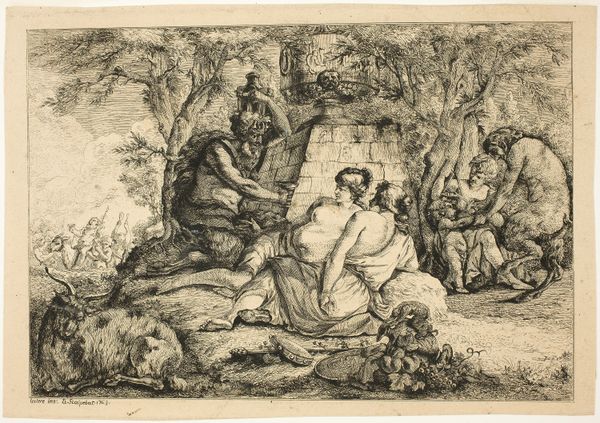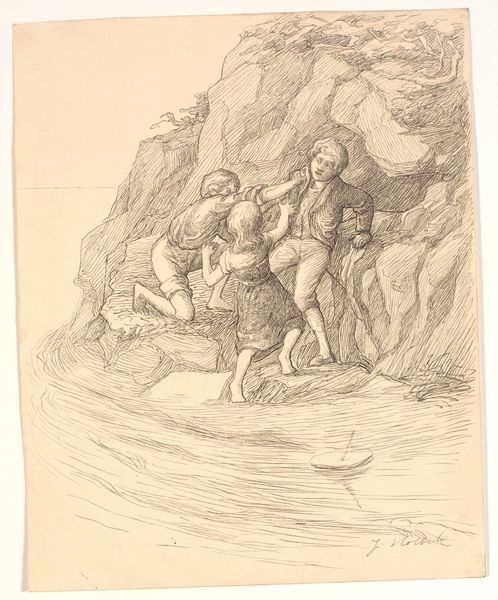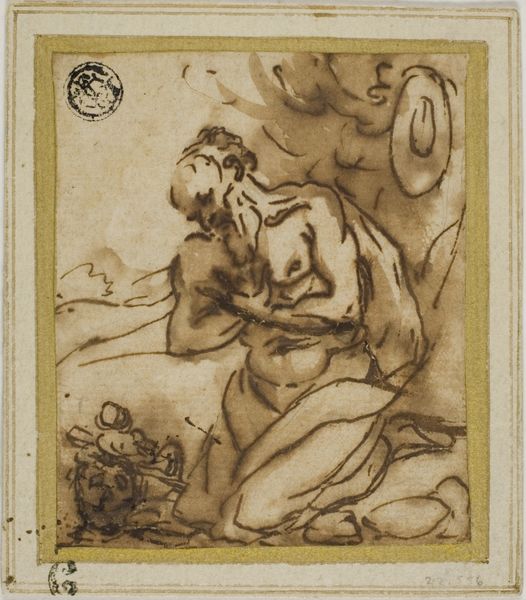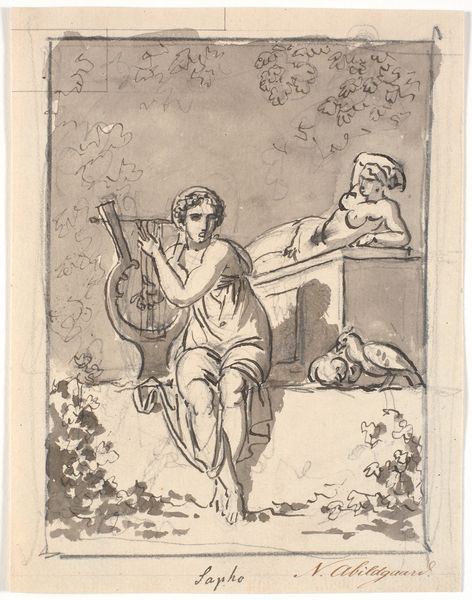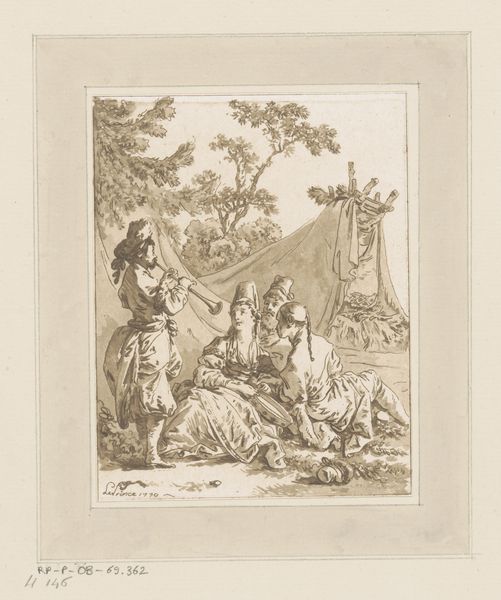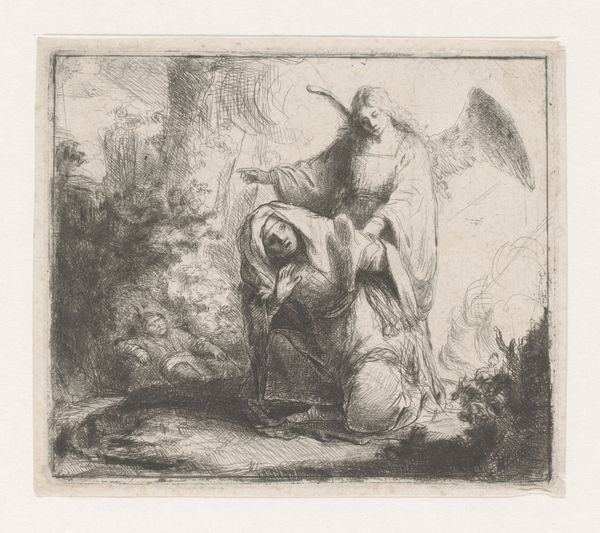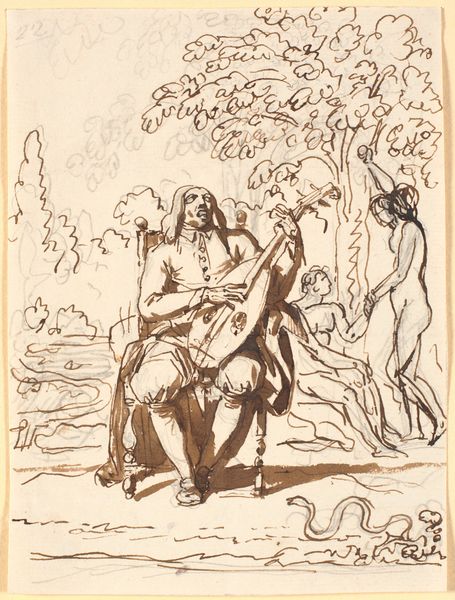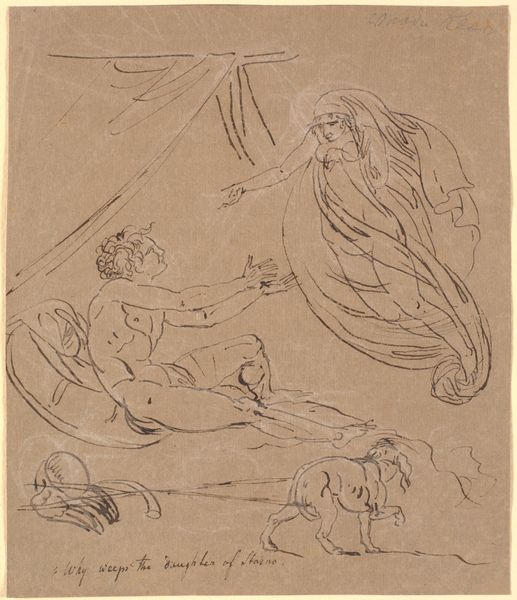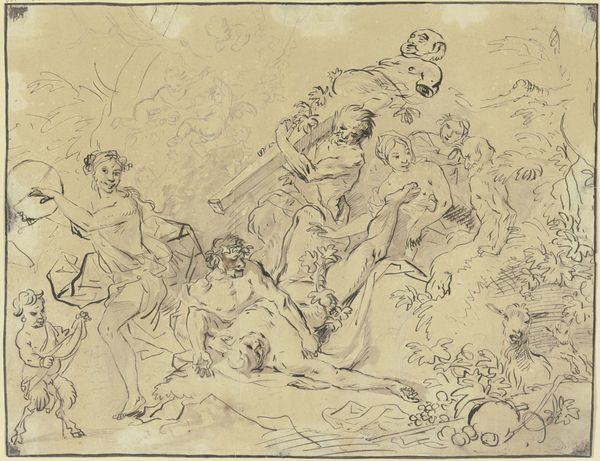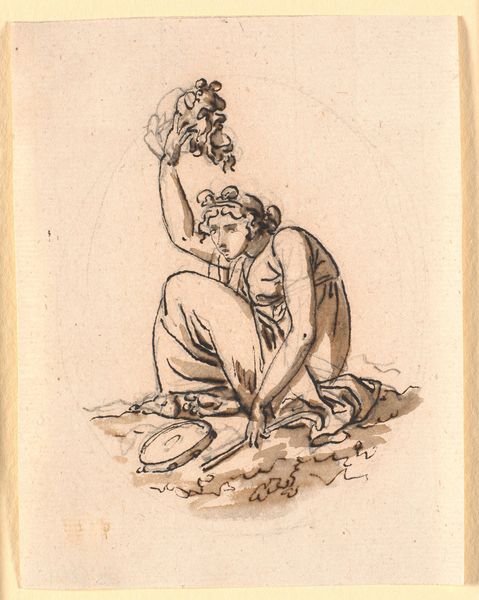
Indians Lamenting the Approach of the White Man (from McGuire Scrapbook) 1825 - 1835
0:00
0:00
drawing, paper, pencil
#
drawing
#
narrative-art
#
pencil sketch
#
figuration
#
paper
#
romanticism
#
pencil
Dimensions: 8 7/8 x 8 1/16 in. (22.5 x 20.5 cm)
Copyright: Public Domain
Frederick Stiles Agate made this watercolor entitled, Indians Lamenting the Approach of the White Man, sometime in the first half of the 19th century. It depicts a group of Indigenous people grieving the arrival of white settlers in North America. The image creates meaning by drawing on visual and cultural codes. Agate uses the visual language of classical antiquity to frame his subjects, alluding to the conventions of history painting in the Western tradition. Note the idealized figures, mournful poses, and somber expressions. But what does it mean to represent Indigenous people using this visual language? Agate’s image is not straightforwardly sympathetic. It seems to justify colonial expansion by presenting Indigenous people as noble but tragic figures. The meaning of art is contingent on its social and institutional context. Historians consult a variety of sources, such as period documents and critical literature, to arrive at a deeper understanding of the social and political function of images like this one.
Comments
No comments
Be the first to comment and join the conversation on the ultimate creative platform.
